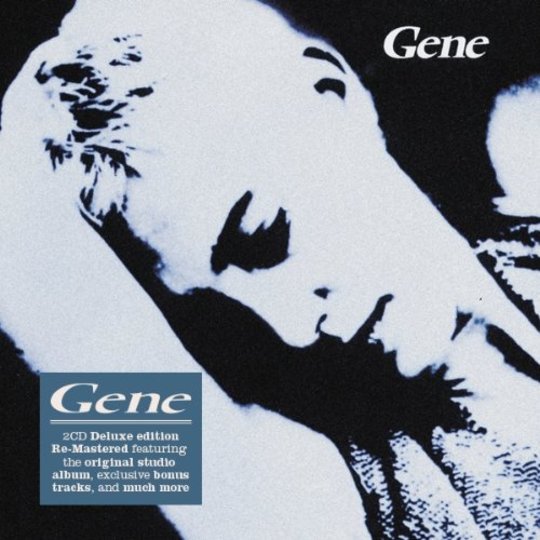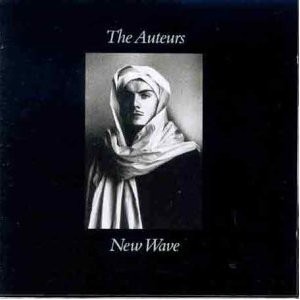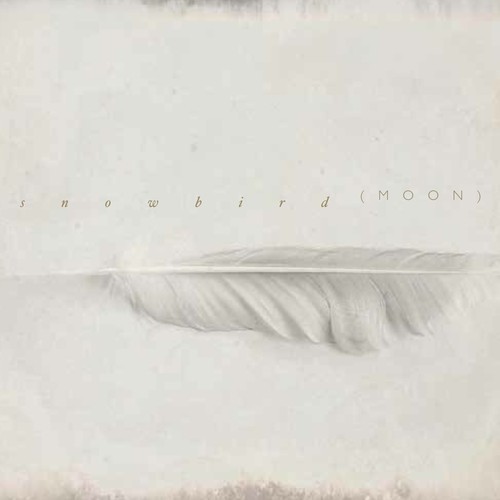Continuing their propensity for missing the zeitgeist by a minimum of two years, Gene have released two-disc casebound CD editions of everything they officially birthed during their 11-year career. This includes their own Hatful Of Hollow, the b-sides and rarities collection To See The Lights. The sensible thing to do would have been to release these to cash in on the wave of reforming Britpop bands and depart with pockets filled. However, the band seemingly remain contrary to the last.
The remasters are subtle, with the recordings given a boost in clarity that does nothing to diminish the songs or remove them from the period in which they were created. Drummer Matt James oversaw the process, wisely avoiding drastic change. Only Revelations is different in tone, appearing both deeper and brighter than before. Since that record was remarkably muddy on first issue, it's a definite plus. For anyone who has forgotten, there are wonderful moments within every release. 'Haunted By You,' from Olympian, bounds along on self-assurance and grace despite the desperate undertones of its message. Along with The Bluetones' 'Bluetonic,' it's one of the true high points of its era. While Olympian has perhaps dated more than the albums that followed, it remains alone as an elegant monument to the allure of romance from a time when misogyny was not just acceptable, but actively encouraged.
Had Gene's debut surfaced in 1993, the chances are that it would all have been very different. A year that saw Suede's debut win the Mercury and Blur's Modern Life is Rubbish gain momentum with each week, it would have been the ideal time for Martin Rossiter to introduce himself to the world.
A blend of desperate ache and disarming confidence, Olympian is a gloriously British record that is also completely uninterested in hiding its sincerity. Unfortunately it suffered the ignominy of being released in 1995, the tipping point that saw the scene branded 'Britpop' disappear into the depths of self-aggrandising caricature fuelled by Stella, cocaine and Loaded magazine.
Gene also sang of cigarettes and alcohol, but on songs entitled 'Sick, Sober and Sorry' (from To See The Lights), wherein Rossiter implored his subject “please don't stop me from drinking/it's my only joy/please don't stop me from smoking/this is my reward.” Times were hard for the sincere.
Despite the positive reviews and successful tours, the ground was crumbling underfoot. Rossiter yielded to the deep depression that had followed him since childhood and was ultimately reflected in the album that followed. Drawn To The Deep End was luxurious in its wallowing, like Dog Man Star but with no inclination to glamourise its condition.
Striking a disarming balance of melancholy and aggression, the run of five songs that opens that second record was simply unmatched by any of Gene's contemporaries in that or any other year. When Steve Mason's guitar halts 'New Amusements' with a sudden tumbling, John Squire-esque riff and the rhythm section stops before finding its feet and propelling the song once more, it's nothing short of glorious.
The album itself is claustrophobic and airless, while Rossiter lives up to the Morrissey comparisons that dogged his entire career. Mixing admissions of guilt and regret (“you said that I should look to the future/I've seen it/I'll stay here”) with sleazy come-ons (“I can bring you solace/on the bureau in my office”), it remains as depression itself: a suffocating comfort that cares not for any other.
That album, too, would enter the top 10, and a gig at the Royal Albert Hall was broadcast live on BBC Radio 1. Nourished by a full orchestra and surrounded by the faded opulence that the album art suggested, it's widely considered the peak of the band's career.
Gene were then let down by Polydor, who denied them more than three weeks of studio time in which to record a follow-up, then failed to promote Revelations upon release. Rossiter put out a press release remarking that 'only when we got to Gretna Green did we realise Polydor had disembarked at Crewe.' The album drew fire from critics who, suddenly sober, wished to quickly move on from the embarrassment Britpop now invoked.
Revelations moves the band's palette from aggression to outright rage, stripping the songs back to their skeletal forms and adding political fury to Rossiter's already bright fire. While the production choices may have stemmed from budgetary constraints, they serve their subjects well. Songs like 'The English Disease', 'As Good As It Gets' and 'You'll Never Walk Again' rail against the malaise surrounding the country at the tail end of the Nineties, while the lyrics approach malevolence “your face is my canvas/a Stanley my brush. 'Angel', however, proved that Rossiter had maintained some empathy from previous offerings.
Undeterred by finding themselves without a label, Gene self-released their final album, Libertine, in 2001. It peaked at 92 in the album chart and the band's demise was assured long before they officially split in 2004.
Libertine may have been roundly ignored, but it also contains some of the best music the band ever wrote, including their towering achievement, 'Is It Over?.' With mournful piano further isolating the frontman's loneliness, it's a true precursor to Rossiter's excellent solo release of 2012, The Defenstration of St. Martin. Mason adds both jagged post-rock texture and plaintive leads, while James and bassist Kevin Miles find a lurching groove amid the gloom. Both 'A Simple Request' and 'O Lover' should have been celebrated and if released a few years later by Bloc Party, surely would have been. There's a real case to be made that Libertine is Gene's best album, a couple of questionable excursions into dub and reggae aside. The b-sides, demos and live tracks that make up the bonus material are all more than worthwhile, including that Royal Albert Hall concert. For those who own the originals, there is enough here to encourage a repeat purchase. However, their exclusion from their parent records is also understandable.
So far removed from their original release, assigning individual scores for each album is redundant. Suffice to say that there are flaws among the high points, as there are within every album ever made. Mistakes are made as the band struggle to grow and find their place. This is music made by humans, after all. What's left, however, stands proud as a body of work every bit as worthwhile as anything released in the Nineties. The fact that these records are now back in print is enough cause for celebration.
-
7Aidan Reynolds's Score
-
8User Score






















